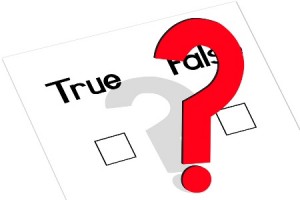We've all stood aghast and listened as our child told a whopper of a lie. Sometimes they're so outrageous you don't know whether to laugh or cry! Some lies seem harmless and indeed may be. But others can signal deeper integrity problems that must be addressed. How to know the difference? And how can you tell for sure when your child is lying and avoid falsely accusing him?
When my children were young I used to ask them one simple question to ferret out lies. I'd say with a smile, "Is that the truth or is it just a good story?" This paints the child in a good light either way so they're more willing to admit if they just told a lie. It also helps them differentiate the difference between truth and fiction. If it turned out to be "just a good story," I'd say I really liked it, but in this situation, I really need to know the truth. I'd explain it's important to tell the truth when asked so people will know they can trust them. Then I'd ask them again, what the truth is for that situation. They usually were glad to tell the truth then. I made sure to praise them for their honesty and being so trustworthy.
Here are some reasons kids lie:
- They're afraid of getting in trouble. Who hasn't done this? In our house, the penalty for breaking a rule was greatly reduced or even done away with if they told the truth about it the first time asked.
- They want to look important. This could signal some self esteem issues. Make sure you praise this child every time you catch them doing something kind, or performing a chore well. Praise them more for character traits you notice than performance. Also, give them responsibilities you know they'll succeed at. Everyone needs a job and a purpose to feel good about themselves. Praise them for their hard work or perseverance, even if the results aren't perfect.
- They don't know truth from imagination yet. Children younger than five years old may have a hard time knowing what the truth is because their imaginary play world is so real to them. So help them learn what's real from what's pretend before meting out any punishments for lying.
- To protect someone. This is especially true of older kids. Their friends may do things you wouldn't approve of and your child may lie to keep their actions from you, even if they themselves aren't participating in them. They may fear you'll cut them off from their friend. Assure your child of your love and concern for them as well as for their friend. If possible, partner with them to help the friend. Pray for him and for your child to be a positive influence in their life. Encourage your child to do the same.
Lying can become a prevalent problem that erodes relationships if not addressed when a child is young. Pray for discernment and wisdom as you guide your child toward a life of integrity. And keep a good sense of humor and laugh at the outrageous when it's obvious he's just telling a good story!
Linda
Linda

